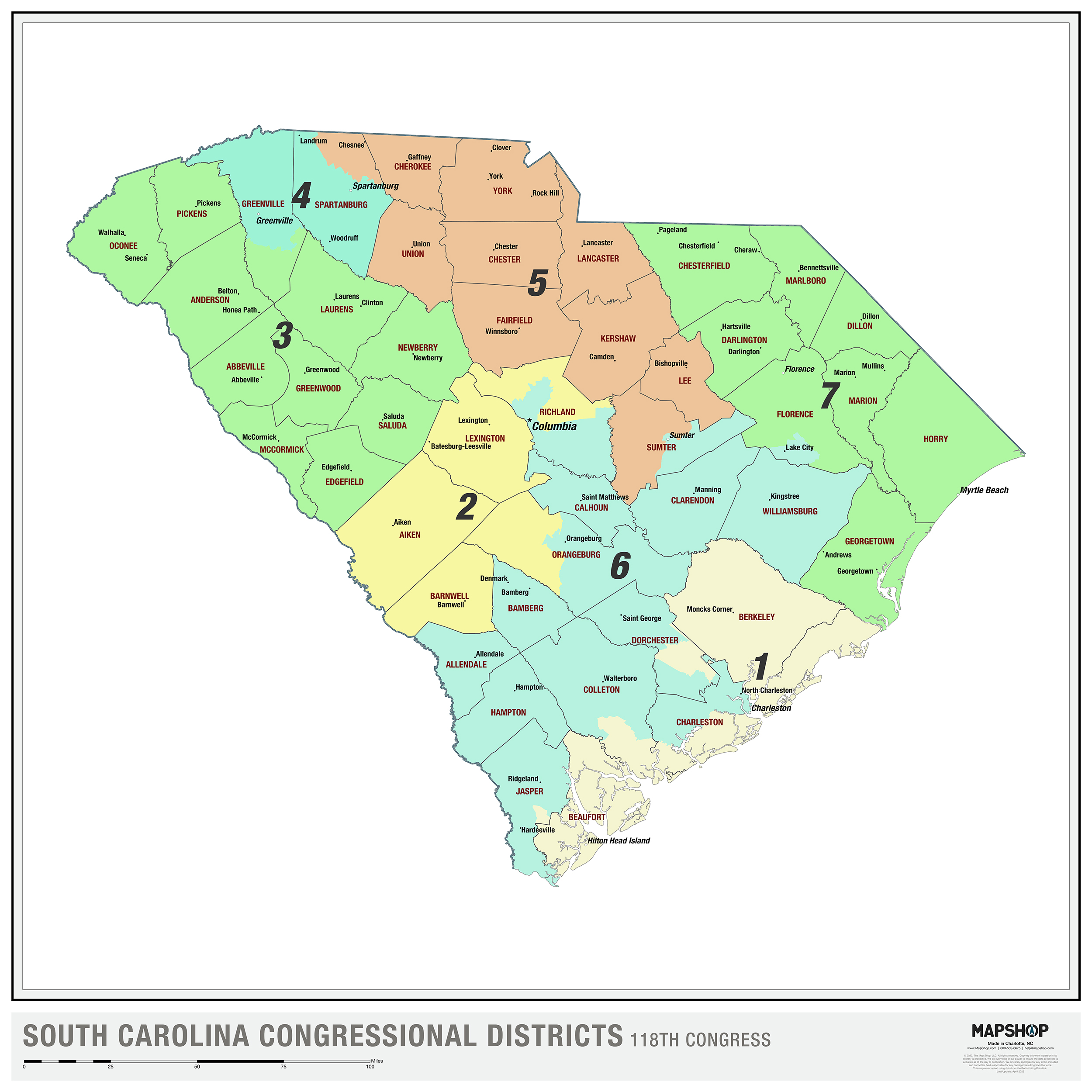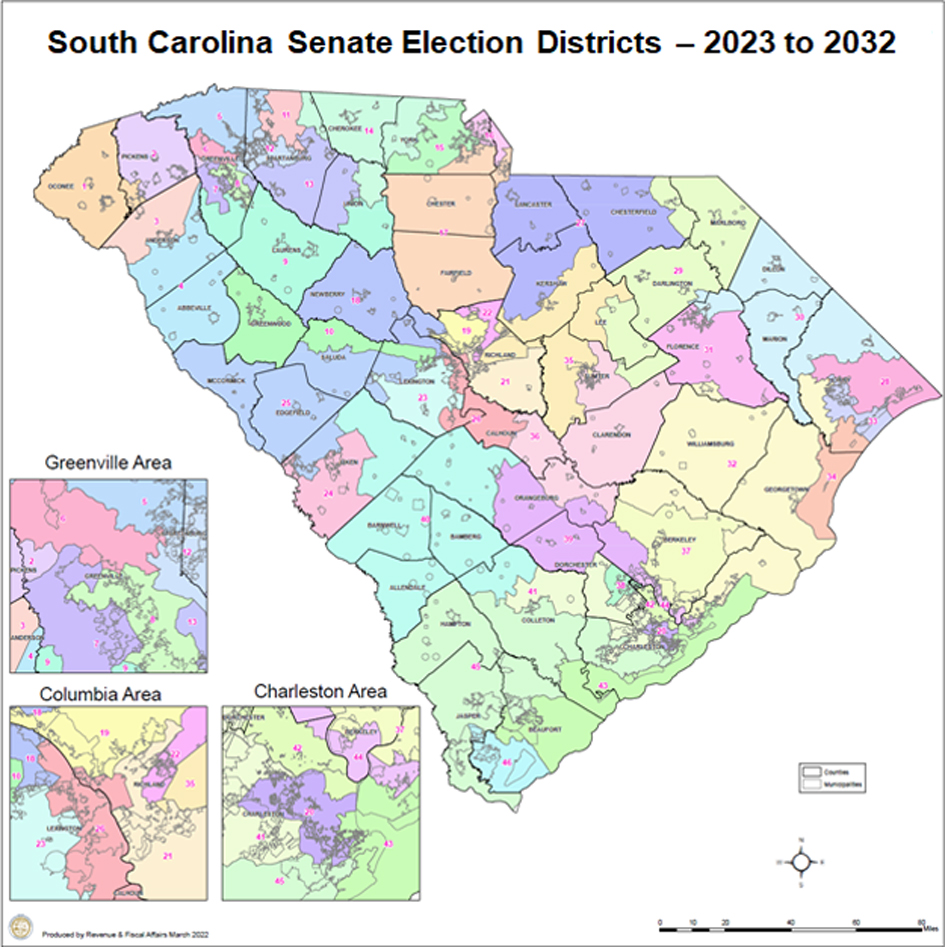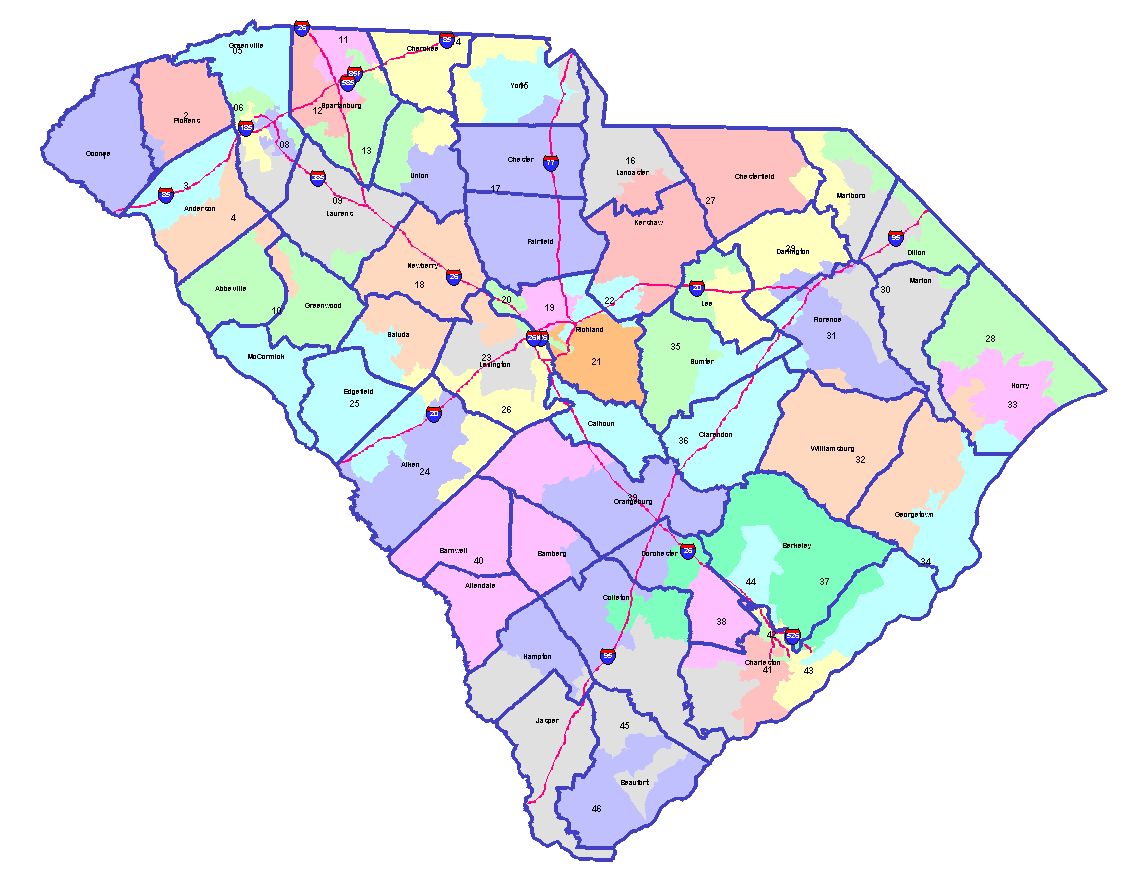A Look At The South Carolina Congressional District Map: Shaping Representation And Power
A Look at the South Carolina Congressional District Map: Shaping Representation and Power
Related Articles: A Look at the South Carolina Congressional District Map: Shaping Representation and Power
Introduction
In this auspicious occasion, we are delighted to delve into the intriguing topic related to A Look at the South Carolina Congressional District Map: Shaping Representation and Power. Let’s weave interesting information and offer fresh perspectives to the readers.
Table of Content
A Look at the South Carolina Congressional District Map: Shaping Representation and Power

The South Carolina congressional district map is a crucial document that defines the boundaries of each congressional district in the state. This map, redrawn every ten years following the decennial census, has a profound impact on the political landscape, influencing the representation of South Carolinians in the United States House of Representatives.
Understanding the Significance of the Map
The congressional district map directly affects the composition of the state’s delegation to the U.S. House, determining which individuals will represent specific geographic areas. This, in turn, influences the balance of power within the House, as well as the ability of certain communities to advocate for their interests.
Key Features of the Current Map
The current map, adopted in 2011, divides South Carolina into seven congressional districts. Each district is designed to contain roughly the same number of people, ensuring equal representation based on population. However, the process of drawing these boundaries can be complex, involving considerations of race, ethnicity, and political affiliation.
The Impact of Redistricting on Representation
Redistricting, the process of redrawing district lines, can significantly impact the political landscape.
- Gerrymandering: One controversial aspect of redistricting is gerrymandering, where district lines are manipulated to benefit a specific political party or group. This can lead to districts that are heavily skewed towards one party, potentially reducing the effectiveness of minority representation.
- Minority Representation: The map’s design also plays a crucial role in ensuring adequate representation for minority communities. The Voting Rights Act of 1965 mandates that districts be drawn in a way that does not dilute minority voting power.
The 2020 Census and the Future of the Map
Following the 2020 census, South Carolina is required to redraw its congressional district map. This process will involve public input, legislative debate, and potentially legal challenges. The outcome will shape the state’s political landscape for the next decade.
Frequently Asked Questions
Q: How often is the congressional district map redrawn?
A: The congressional district map is redrawn every ten years, following the decennial census.
Q: Who is responsible for drawing the map?
A: The process of drawing the map typically involves the state legislature, although in some states, independent commissions are responsible.
Q: What are the main considerations when drawing the map?
A: The main considerations include population equality, contiguous boundaries, and compliance with the Voting Rights Act.
Q: What are the potential consequences of gerrymandering?
A: Gerrymandering can lead to uncompetitive elections, reduced voter choice, and a lack of responsiveness from elected officials.
Tips for Engaging with the Redistricting Process
- Stay informed: Follow the redistricting process in your state and understand the proposed changes to the congressional district map.
- Engage in public comment: Participate in public hearings and submit your feedback on the proposed map.
- Support advocacy organizations: Organizations focused on fair redistricting can provide resources and guidance.
Conclusion
The South Carolina congressional district map is a vital tool that shapes the state’s political landscape and determines the representation of its citizens in the U.S. House. Understanding the process of redistricting, the potential impact of gerrymandering, and the importance of fair representation is crucial for ensuring a democratic and responsive government. As South Carolina prepares to redraw its map following the 2020 census, it is essential for citizens to engage in the process and advocate for a map that reflects the interests and values of all communities.







Closure
Thus, we hope this article has provided valuable insights into A Look at the South Carolina Congressional District Map: Shaping Representation and Power. We appreciate your attention to our article. See you in our next article!